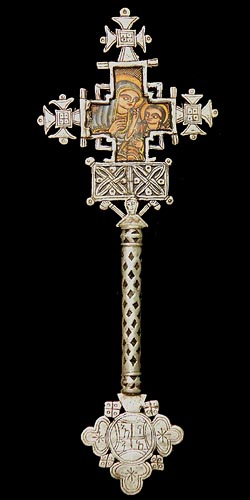Sometime in 2005, I stumbled across the online episode of NPR’s This American Life. Ira Glass was introducing the episode, Heretics, and Russell Cobb's story of Bishop Carlton Pearson: black Pentecostal sensation; pastor of the exploding multiracial Tulsa mega-church, New Dimensions; and heir-apparent to the Oral Roberts evangelical dynasty. But Pearson, just as he was soaring toward the top, became a heretic; he stopped believing in hell. He'd come to realize that the doctrine of hell was inconsistent with the mercy of God. A God who would damn anyone to an eternity in hell was, in his words, "a monster," "worse than Hitler." He began preaching that everyone, without exception, was already saved. The Bishop became an immediate pariah.
In 2005, I was entering a season in my life and my ministry when such a leader was intensely interesting to me.
I was a pastor, but, unlike Pearson, I'd never put much stock in hell. It wasn’t that Pearson stopped believing in hell that gripped me. It was a line he used at the end of Russell Cobb's interview, where Pearson called his message “the gospel of inclusion.” While hell wasn't as central to my church's faith experience as it was to Pearson's, the exclusionary nature of Christianity was. And I was coming to the point where I could no longer hold to a religion that could exclude anyone from its experience of God.
I was dabbling in the "gospel of inclusion" and testing where it might lead.
A man shook my hand as he left worship one Sunday and said slyly, “So what you’re saying is that Christianity is an opt-out religion rather than an opt-in religion.” ‘Yes,” I said tentatively, “I suppose I am”--not knowing if the man was for or against what he thought I was saying. “That seems a good way to put what I think Jesus was about.” Another person once winked at me after a sermon and said, “If people really understood what you are saying, I wonder what would really happen around here.” But aside from some who were sensitive enough to what I was preaching and praying, my inklings were subtle enough not to get me branded as a heretic.
Over the next decade, I found myself returning to that This American Life story of Bishop Pearson probably a half dozen times. During that decade I had to deal with my increasing spiritual compulsion to speak my mind about what I thought the gospel of Jesus was really about especially with regard to the LGBT community. I would have to make tough decisions about my convictions, the way my convictions would affect people who saw things very differently from me, and what these convictions could mean for my leadership in a traditional church. (I explored that journey more fully in my 2015 book, A Table for All: How I Came to Understand the Gospel Means Full Inclusion of Gays and Lesbians.)
Bishop Pearson became for me a partner in that journey; his story reminding me to stay true to the Jesus I knew, to face my fears, and realize what it all might cost. When I was afraid, confused, riddled by doubt, and harassed by fundamentalists, I returned to that 2005 NPR story.
There were costs, but many gifts as well (some really remarkable and brave people); I wouldn't do it any other way.
Bishop Pearson's story is now the new Netflix, acclaimed movie, Come Sunday.
Last night, Patty and I sat down to watch it. I was surprised by the emotion it triggered for me, the sleepless night I spent afterward. It reawakened both my feelings of gratitude for Pearson’s life, the faithfulness the journey required of me, as well as the pain and suffering I, and others, experienced along the way.
Come Sunday follows closely that 2005 story about Bishop Pearson. I commend it. It’s well acted and sensitive to all the players in the story. It’s about religion without being preachy. And it shows the real humanity of all those involved. A remarkable film. What’s more it’s a critically important piece for this cultural moment.
Religion, despite its many problems, is here to stay. Religion will play a vital role in either the absolute collapse of the human experiment on the earth or its transformation into a more benign or even beneficial presence on the planet.
The story of Bishop Carlton Pearson is a sign of the needed transformation of religion and a witness to the enormous courage it will take by those called to give birth to new religious expressions that serve the greater wellbeing of the world.
Pearson gave me courage when I felt terribly alone and yet compelled to help lead Christianity out of its adolescence and toward a maturity fit for the 21st century.
I’m immensely grateful for this sensitive and timely film.



